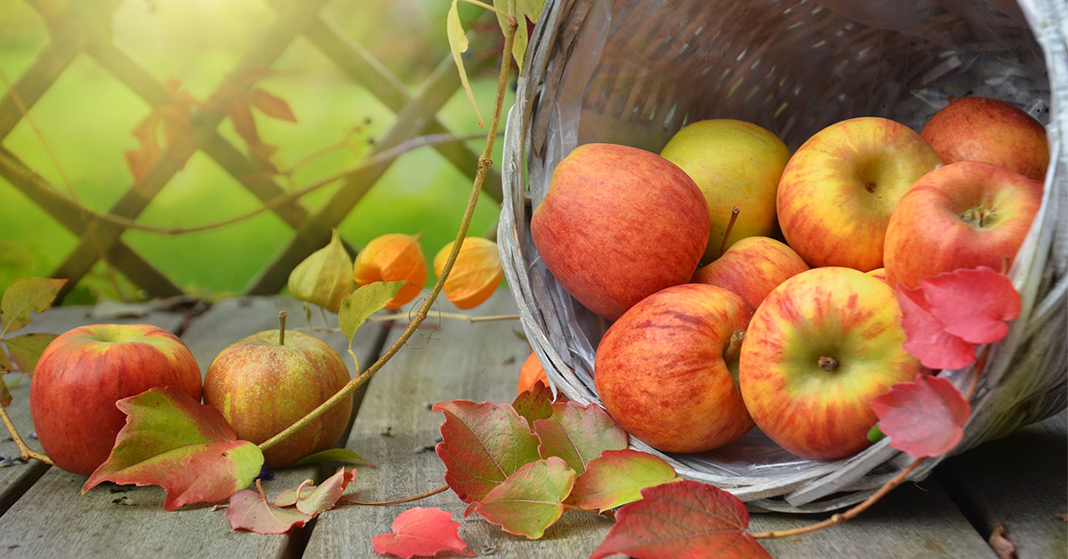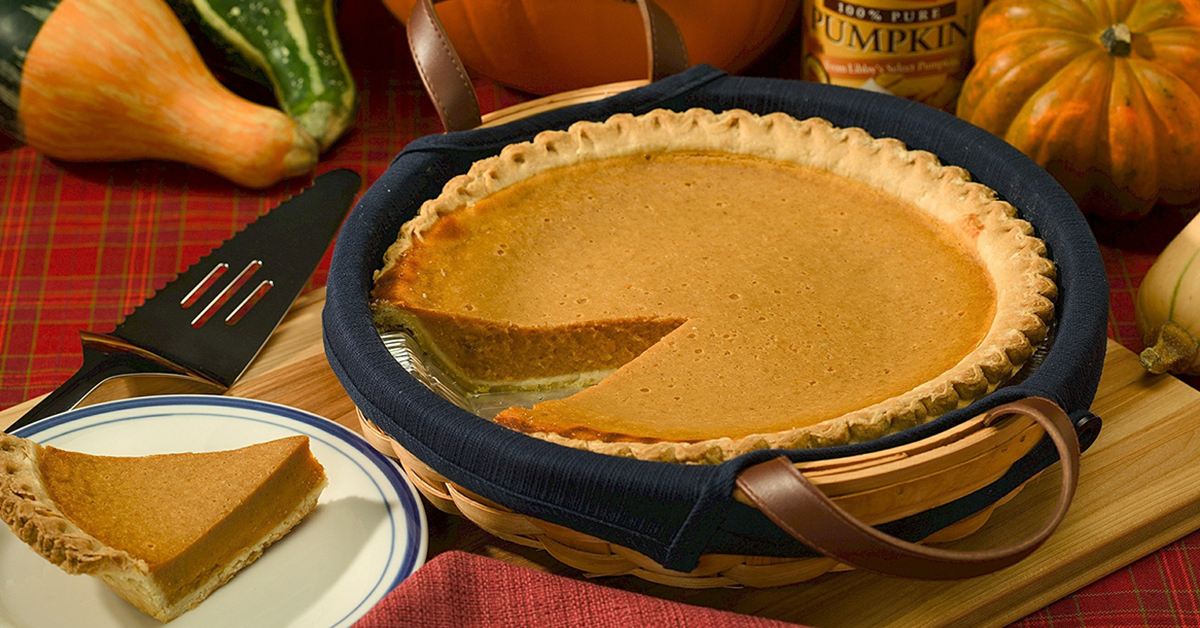
What’s not to love about fall? Cooler weather, colorful leaves, apples, and pumpkins are the perfect inspiration for harvest-themed homeschool activities you can enjoy with your family. It’s an ideal season for both indoor and outdoor creativity, so here are just a few ideas to jumpstart your fall plans.
harvest
Learning to Trust God for Your Harvest

We think of autumn as the season of harvest. Even with the conveniences of grocery stores and restaurants, we all look forward to the cooler weather that brings fresh apples, blackberries, sweet potatoes, squash, and pumpkins to the produce aisle. For all the difficulties that a life on a farm involves, it must be rewarding to gather in the harvest. Imagine finally seeing the results of all the effort you’ve put into planting and maintaining the fields for those long months!
Tending to Your Family
Don’t we sometimes think about homeschooling and parenting the same way—wishing that the family were like a garden plot so that our diligent work throughout spring and summer would yield the satisfaction of tangible results by autumn? But tending a family is a year-round occupation. Homeschooling never ends—not even when the yellow school buses make their rounds at the end of the school day. We may hand out final grades to our children as the school year closes, but rarely do we get to see a final assessment or “harvest” of our work—there’s no concrete evaluation of our overall success level.
Instead, our harvest comes in bits and pieces as our children grow. When a daughter finally understands multiplication, when a son learns to ride his bike without training wheels, when brothers and sisters help each other and unselfishly share their toys (OK, so maybe we’re still working on that one!)—these are the things that show us that the time and effort and prayer we have put into our children’s lives are bearing fruit.
The difficulty comes when not all the plants in our home garden flourish. With some of our children, we can’t help but wonder whether we will ever see a harvest ripened and ready in their lives. “Where did I go wrong?” we wonder. “Did I use the wrong seed? Overwater? Hurt the roots when trying to pull the weeds?” Sometimes we plant, tend, and do everything we can think of, but instead of the fruit of the Spirit, we see only self-centeredness, pride, and rebellion. What can we do when the seeds we’ve tried so hard to cultivate seem to lie dormant or dead in the soil—when instead of producing godly fruit, a child prefers to sow “wild oats,” heedless of the harvest they will yield?
As much as we would like it to be, Proverbs 22:6 is not an ironclad promise—a guarantee that if we hold up our end of the bargain, God will make sure our children turn out all right. Instead it is an exhortation, wisdom we will never go wrong in following. “Train up a child. . . .” Plant, plow, tend, weed, water. Do everything we can to help these plants grow and flourish. And then? Step back in prayer and watch the Lord give the increase (1 Corinthians 3:7).
Waiting for the Harvest
Of course, stepping back to watch is never easy. But the farmer can’t be constantly digging around the roots of his wheat to see whether it is growing right. He can’t pull back the husks from every ear of corn to see whether the kernals are forming properly. No, the farmer has to wait and trust that the God who grew the Garden of Eden is also watching over his fields. And we have to watch our children make decisions for themselves daily. We can and should guide, sometimes even override, those decisions while the children are young, but there comes a point when they must answer for their own actions.
Search your own heart. Are you are walking with God as He requires? That’s all you can control. Don’t carry the weight of guilt for their actions when God doesn’t ask you to bear it. We all make mistakes. We sin. He knows—He died to save us from sin. And He also chose each one of us specifically to parent our specific children. Even when hopes, goals, personalities, and tastes seem to clash horribly between parent and child, God has a good purpose in store.
One of the dictionary definitions of harvest is “a supply of anything gathered at maturity and stowed.” None of us has reached full maturity yet. Do you feel ready to stand before God today, or would you like time to grow more? The same is true of our children, whether they appear to be flourishing, yielding a bumper crop of the good things we hope to see, or they are simply alive, tenaciously clinging to the dirt. We must give them—give ourselves—time to grow.
Trusting the Lord of the Harvest
The harvest we wait for may take much longer to ripen than autumn’s golden pumpkins. It’s possible that we won’t even get to see or share in the fruit of our love-labors. But that’s all the more reason to trust the Lord of the Harvest. He knows each unrolling leaf and bud, each bug and blight, and every different season that will be a part of our children’s growth. We may sow the seeds, but it’s God who gives the rain, sun, and life. Don’t give up hope in times of drought. Don’t uproot the browning stems even when plants appear dead—you don’t know what life still flows despite the brown leaves.
Trust the Lord of the Harvest. And in your trusting, give thanks that He has the greatest stake in the harvest for which you’re both waiting. Hasn’t He even given His Son to bring it in? Give thanks that He knows the outcome and that whatever the harvest yields, God is still and always will be good. And He delights in helping His children—of every age—to flourish “like a tree planted by the rivers of water, that bringeth forth his fruit in his season” (Psalm 1:3).
What’s the Best Thanksgiving Harvest?
All right, we admit it.
For most of us, the bounty of the harvest we celebrate in November comes from the grocery store. The Pilgrims would never recognize our “harvest”—canned, prepackaged, pasteurized, and processed—as bearing any resemblance to theirs.
Not long before their harvest made it onto the table, it was either still growing or still flying around in the woods. Their harvest was the culmination of months of ceaseless prayer, backbreaking labor, and skillful hunting.
Does that mean our “harvest” has any less value than theirs did? Not at all! We pray too (for the regular paycheck), labor (to make the most of our grocery money), and skillfully hunt (for the best bargains).
Remember, though, that God provided for the Pilgrims’ needs exactly what was most appropriate to their time and place. Can you imagine gifts of food from Massasoit and his braves containing things like refrigerated pie crusts and prepackaged stuffing? As resourceful as those first settlers were, they probably wouldn’t have known what to do with such gifts! God evidenced His goodness to the Pilgrims with gifts they could use.

It’s easy to forget in today’s environment of “have it all” that everything we have is intended by God to remind us of His goodness. And the plain truth is that we would never be able to make use of “all” even if we tried. (Granted, some of us would prefer to learn that lesson by experience!) But just as with the Pilgrims, God provides for our needs in the ways that are most fitting to our times and places.
So while we want to take the best possible care of our bodies by eating healthful food, sometimes our most pressing need is for quality time with our families. And if that means buying a prebaked pumpkin pie instead of making it from scratch or using instant mashed potatoes instead of homegrown ones, does that make our harvest any less real, valuable, or commendable than the Pilgrims’ first? Not at all! We have an even better harvest—one they would gladly have shared.
By the time the little colony at Plymouth was ready to celebrate its first harvest, it had lost almost half the original members to sickness and hardship. The harvest we celebrate when we gather together consists not so much of the food on the table as of the people around it. The young people we do our best to rear for God’s glory, the elders we respect for their wisdom and experience, the family members of various ages who all have their part in shaping our lives—these loved ones are the bountiful harvest of God’s goodness in our lives.
So whether your Thanksgiving table holds little or lots and whether it’s fresh from the outdoors or fresh from a package, remember this: Far more important than the quality or quantity of the food on the table are the loved ones it’s shared with.
May you find His abundance in your life to be far beyond what you can ask or think this Thanksgiving season!
The Real Story of Thanksgiving Day

What do you imagine when you think of the first Thanksgiving? Prim people in black hats with buckles, dressed in crisp outfits with white collars? Instead, imagine tired moms and dads, thrilled to finally have enough food for their hungry children. Picture Wampanoag warriors, hauling in whole deer as their contribution to the meal. The tables weren’t beautifully appointed with chic centerpieces and fine flatware; most of the guests probably sat on the ground or on nearby tree stumps, eating from wooden bowls.
For the Pilgrims, that year had been brutal. Many people they loved had died from accidents, privation, or illness. Their shining dream of a free Promised Land had melted into the grim reality of dark, dense forest and hard, unbroken ground.
The American Indians looked out from the sheltering boughs of that wild forest, and they saw haggard, white-faced men and women, slow and stumbling from weariness and lack of food. The tribes saw that these newcomers had the will to survive. All they lacked was knowledge—and enough supplies to give them a second chance.
And then came the wonder that makes Thanksgiving so special. Although they did not know Him, God moved in the hearts of those Native Americans, planting seeds of mercy. With the Wampanoags’ help the Pilgrims had a bountiful harvest, and Governor William Bradford invited everyone to feast and celebrate.
That first Thanksgiving feast went on for three days. No one forgot the sadness of the past months, but they let joy and gratitude overflow instead. They lived out Psalm 106:1, “Give thanks unto the Lord; for he is good: for his mercy endureth forever.”
Thanksgiving Day exists to remind us of all the blessings and gifts of the year, especially the ones that fill your heart so full of gladness so that sorrow has no room—the small arms of a child around your neck, the laugh of someone you cherish, the smile of a friend.
So “let the peace of God rule in your hearts . . . and be ye thankful” (Colossians 3:15–17).
• • • • •
Rebecca is a work-at-home freelance writer, novelist, wife, and the mom of two bright-eyed little ones. She credits her success in writing and her love of books to her own mom, who homeschooled three kids from pre-K through high school.